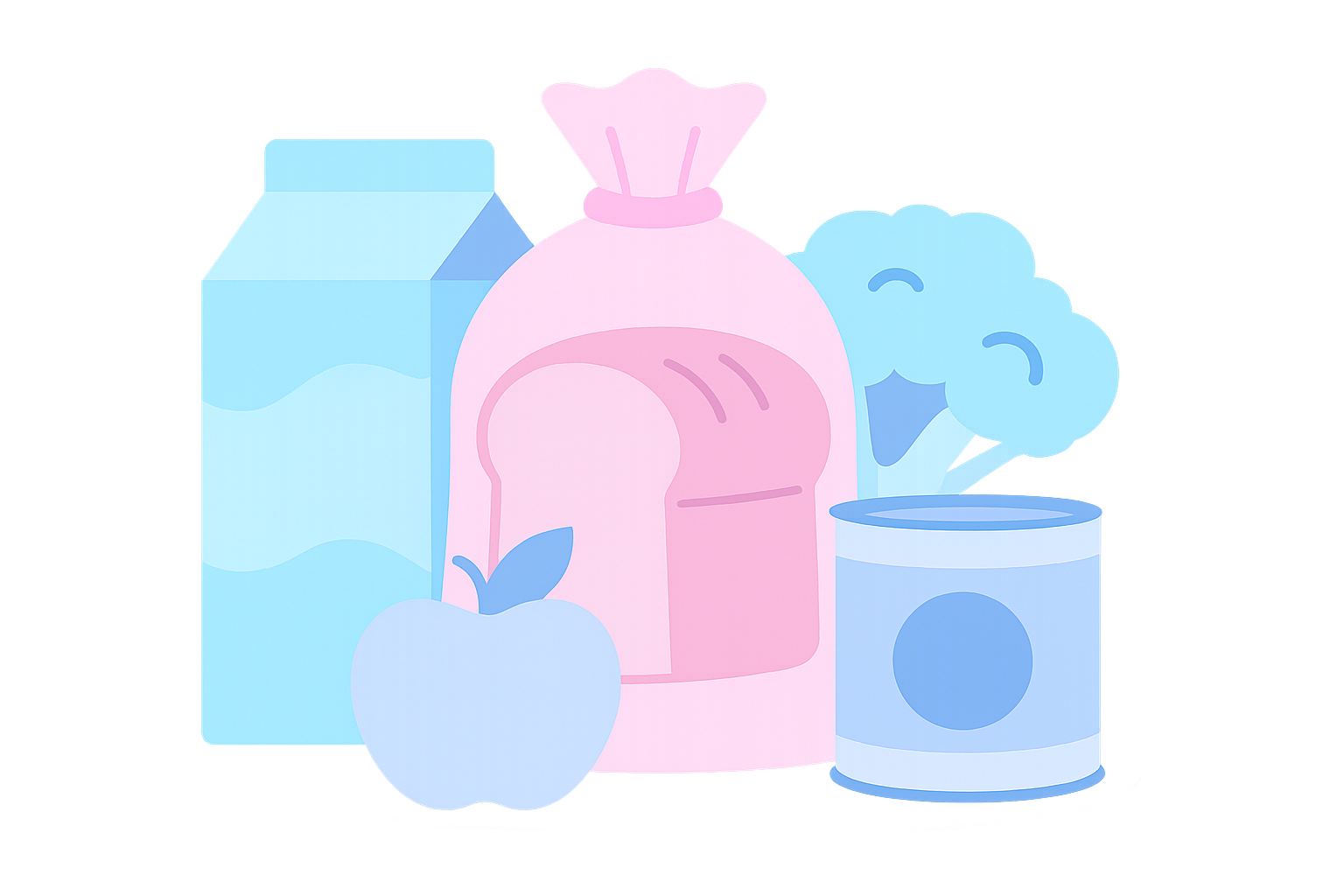New in the Netherlands? Learn how to shop for groceries as an international student: where to buy, how to save, and what belongs in your basket.
Moving to a new country comes with a learning curve—and grocery shopping is no exception. From unfamiliar brands to figuring out where to find peanut butter, the supermarket experience in the Netherlands can feel overwhelming at first.
Where Do Dutch Students Buy Groceries?
There are several supermarket chains in the Netherlands. Here’s what you need to know:
Albert Heijn (AH)
Known for convenience and quality. Prices are a bit higher, but stores are everywhere. Look out for “bonus” deals each week using the AH app.
Lidl
Cheaper and focused on essentials. Great for students on a budget. Limited branded items but solid quality.
Jumbo
Often seen as a balance between AH and Lidl. Has more international products and a wider range than Lidl.
Aldi
Very budget-friendly. You might need to get used to generic brands, but great for saving money.
Turkish, Polish or Asian supermarkets
Perfect for fresh produce and imported goods from home. Usually cheaper for meat, vegetables, rice, and spices.
What About Online Grocery Shopping?
Don’t feel like hauling bags or waiting in line? Services like Picnic and Albert Heijn Online make grocery shopping easier — especially if you live in student housing without a car or bike.
✅ Benefits:
- Delivered to your door — no need to carry heavy bags
- Easier returns — if a product is damaged or wrong, customer service is usually fast and helpful
- No queues for deposit refunds — you can return empty bottles and crates (statiegeld) with your next order
- Automatic digital receipts — useful for budgeting
⚠️ Things to keep in mind:
- You need to meet a minimum order amount (usually around €35–50 depending on the service)
- Delivery slots may fill up quickly, especially on weekends
- You need to be home to receive the delivery
💡 Tip: Picnic is app-based and often more affordable, while Albert Heijn Online offers more variety and better time slot options.
What to Buy (and What Not to Waste Money On)
When you’re on a student budget, every euro counts. Here’s how to build your grocery list smartly:
✅ Smart to Buy:
- Frozen vegetables – cheaper and last longer
- Store-brand basics – like rice, pasta, flour, or cleaning supplies
- Seasonal fruit – look at what’s cheap that week
- Canned beans, tomatoes, lentils – perfect for fast meals
- Discount meat or meat alternatives – especially with yellow “50% korting” stickers
❌ Easy to Waste Money On:
- Pre-cut fruit and salads
- Branded snacks and soft drinks
- Daily takeout food
- Buying too much fresh produce and letting it rot
Tips to Save Money on Groceries
1. Make a weekly plan
Decide what meals you’ll eat during the week and create a simple list. This avoids impulse buys and food waste.
2. Don’t shop when you’re hungry
It sounds cliché, but it’s true: shopping hungry = snack overload.
3. Buy in bulk for staples
Items like rice, oats, beans, and pasta are often cheaper in large bags.
4. Look for discount (korting) stickers
These indicate korting (discounts), especially on meat or dairy close to the sell-by date.
5. Use a grocery app
Albert Heijn, Jumbo, and Lidl all have apps that show discounts and let you create lists.
What About Drinks?
Water from the tap in the Netherlands is safe and free. Buying bottled water is usually unnecessary.
As for other drinks:
- Coffee: Buy a cheap filter machine or instant. Way cheaper than cafés.
- Tea: Big selection in most stores, or check Turkish shops for bulk bags.
- Soda & juice: Often overpriced and not great value.
Tip: Look out for “1+1 gratis” (buy one, get one free) or “2e halve prijs” (second item half price) deals.
Reusable Bags & Supermarket Etiquette
- Bring your own shopping bag – plastic bags cost extra and are discouraged.
- Pack your own groceries – in most Dutch supermarkets, you’ll be expected to bag your own items.
- Use a loyalty card – especially at Albert Heijn. The bonus card is free and gives access to all discounts.
Bonus – Don’t Fall Into These Traps
- Buying everything at one store: Compare prices! Lidl is often cheaper for basics.
- Cooking every meal from scratch: Prep in batches. Use leftovers smartly.
- Buying 3 sauces and no actual food. (It happens.)
Conclusion
Grocery shopping as a student in the Netherlands can feel overwhelming at first — but with a little planning and the right strategies, it becomes a manageable (and even empowering) part of student life.
Focus on what you really need, take advantage of discounts, and don’t worry if your first few trips are chaotic. You’ll get better with every week.

